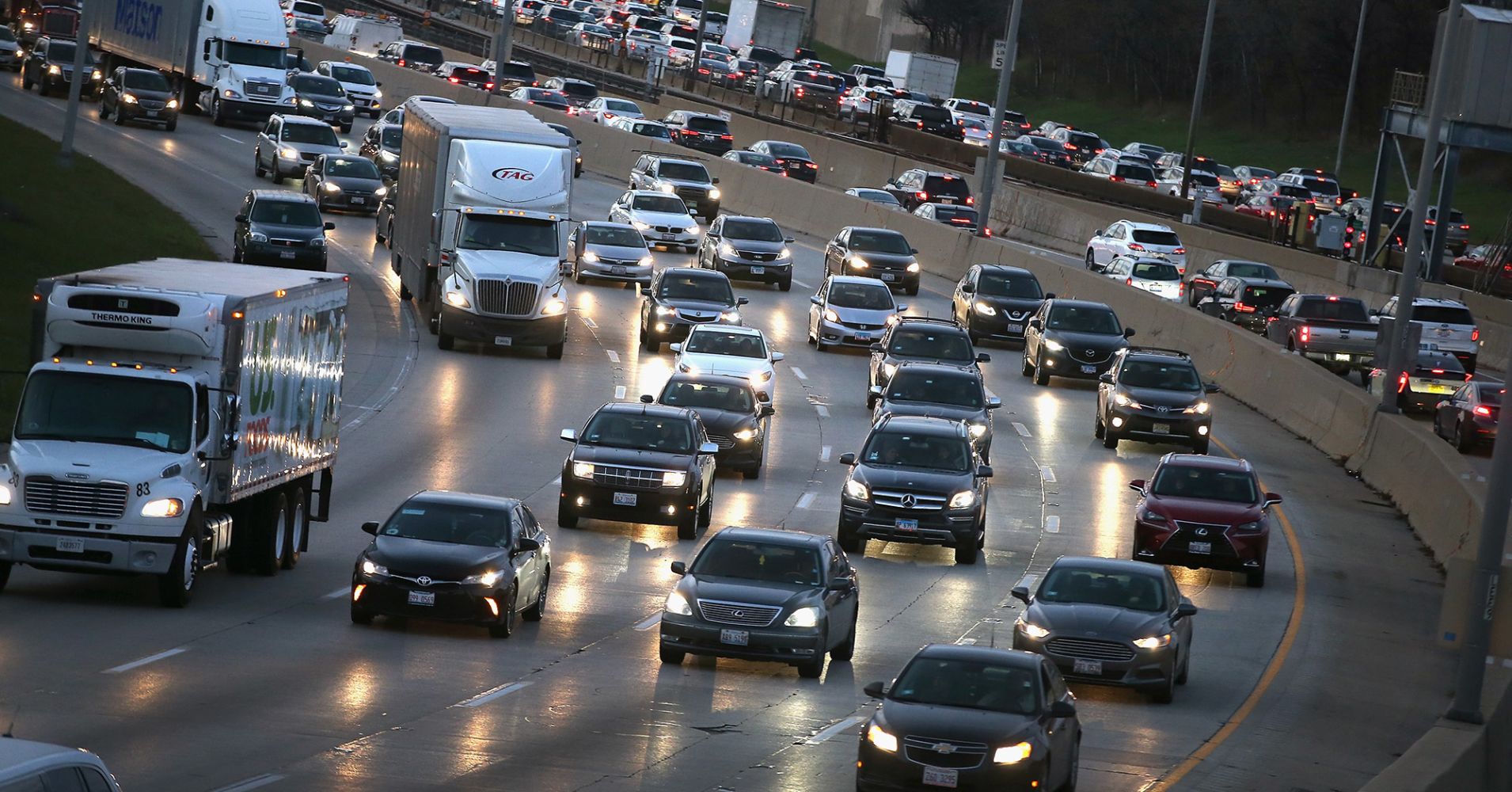
Drivers heading out for the Thanksgiving holiday will find gasoline prices lower than they’ve been in nearly a year, thanks to a sharp drop in the cost of crude oil and a surge in fuel production driven by big demand for diesel.
The average pump price for a gallon of regular gasoline fell to $2.62 this week, seven-cents less than a week ago and the biggest one-week decline this year, according to the latest price survey from AAA. That leaves the average price just seven cents above this time last year — the lowest yearly change since July 2017.
“I think that we’ll probably have 18 states that are cheaper than last year on Thanksgiving weekend,” said Tom Kloza, global head of energy analysis at Oil Price Information Service.
Pump prices remain substantially higher in the western states, however, thanks the high cost of transporting motor fuel to the region and the relative dearth of local production capacity. Prices are lowest in Texas and Midwestern states.
“If you’re east of the Rockies, there’s a good chance you’re going to be able to find gasoline between $1.90 and $2.25,” said Kloza.
Several factors have been driving pump prices lower, beginning with a sharp drop in oil prices. The cost of crude oil plunged more than 20 percent from the start of October to mid-November, driven by a broader market sell-off and the growing consensus that global oil supply is outstripping demand.
Crude oil is the raw material for petroleum products like gasoline, diesel and jet fuel, so a tumble in the cost of crude translates to a drop in fuel prices. The full extent of the oil market sell-off isn’t yet baked into consumer costs, so analysts think pump prices will keep falling into the holiday weekend and beyond.
“We’re at $2.62 today,” said Andrew Lipow, president of Lipow Oil Associates. “I expect we’re going to head on down to a national average of $2.50 by the end of the month.”
Commodity watchers say the pressure on fuel prices will probably persist until the first full week of December, when OPEC, Russia and several other producers meet. The group is expected to agree to production cuts, which aim to prevent oversupply and tend to boost oil prices.
But there are other factors keeping a lid on prices at the pump.
The United States is sitting on large stockpiles of gasoline. Lipow notes that inventories across the country are 5-10 percent higher than at this time last year. In the East Coast, stocks are about 20 percent above year-ago levels.
As inventories have risen, demand for gasoline continues a long-term decline, in large part because car and truck makers continue to improve engine efficiency.
Despite the soft demand for gasoline, demand remains strong and profit margins are holding up for distillates like diesel, jet fuel and home heating oil. That has also helped create a glut of gasoline. Because the mix of gasoline and diesel produced from each barrel of crude is fixed, boosting production of diesel and jet fuel means producing more gasoline. So as refiners churn out more diesel and jet fuel, they’re adding to the gasoline glut.
The boom in U.S. oil output from Texas shale fields is also creating ample supplies of light crude. That shale oil provides a cheap raw material for Gulf Coast refineries, but it also yields more gasoline and less distillate than a barrel of heavier crude.
“The refiners are refining more this year because they want more distillate, but to get more distillate they’re producing more gasoline,” said Matt Smith, director of commodity research at ClipperData.
“So they’re refining more of the stuff they don’t need to get more of the stuff they do need,” he said.
Expectations for a cold winter will only increase demand for distillates, since many residences in New England still rely on home heating fuel, according to Lipow.
There’s another piece of good news for consumers: Refineries are ramping up operations after shutting down facilities for seasonal maintenance.
“As refiners are returning form maintenance in the Midwest and the Gulf Coast, they’re increasing the demand for crude oil, which will of course be turned into additional supplies of gasoline,” Lipow said.

